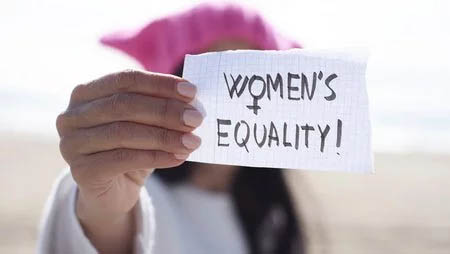Dr Mitali Gupta
India is a country rich in diversity, with its cultures, languages, and religions thriving under one roof. Yet, while agriculture and traditions hold their own beauty, communication often falls short in sensitivity. The way we label and address people, particularly women, reflects deep insensitivity and perpetuates harmful stereotypes.
For example, calling a woman a “widow” after the loss of her husband reduces her identity to her loss, when in reality, she deserves empathy, not a title that carries pain and stigma. Similarly, women who cannot have children are unfairly labeled with terms like “barren,” ignoring their emotions and struggles. These terms are not only insensitive but dehumanizing, as they disregard the personal circumstances and biological reasons beyond a woman’s control.
What’s even more troubling is how society excludes these women from cultural ceremonies, labeling them as “unlucky.” This mindset stems from deeply ingrained superstitions, failing to recognize that a woman’s worth is not defined by her ability to bear children or her marital status. These are life events, not choices, and they should be met with compassion, not judgment.
It’s also deeply concerning how society turns its harsh gaze toward women who choose not to marry. Instead of respecting their autonomy, people often weaponize this decision, using it as a tool for humiliation. In disputes, the first insult thrown is often that a woman couldn’t “secure” a marriage, as though her value is tied to that institution alone.
We need to transform into a more empathetic society, one that respects all women, whether they are married, single, childless, or widowed. Women facing life’s challenges deserve our support, not further burdens. By fostering understanding and compassion, we create a future where every woman feels valued for who she is, not for the societal labels imposed upon her. Let’s give every woman the respect she deserves, without judgment or prejudice.
In the court of law, labeling women in such derogatory ways should be considered a form of harassment. There must be proper legal consequences for using terms that diminish a woman’s dignity based on her personal circumstances, such as widowhood or childlessness. These harmful labels strip women of their identity and perpetuate stigma, reinforcing outdated and oppressive attitudes.
To safeguard the dignity of all individuals, such language should be banned, ensuring that no woman is reduced to a mere title reflecting societal prejudices. Every person deserves to live with respect, free from the burden of unjust and dehumanizing labels.
Breaking the Taboos: Rethinking Traditions Around Widowhood and Women’s Rights
Across many cultures, especially in certain customs within Hindu traditions, women have long been subjected to discrimination based on their marital status. These cultural practices not only create a divide between married, unmarried, and widowed women but also enforce deeply humiliating stigmas. Widows, in particular, face social isolation and are often barred from participating in important events like marriages or religious ceremonies, simply because they have lost their husbands. This exclusion is nothing short of dehumanizing, as it reduces a woman’s worth to her ability to remain married or bear children.
The idea that widows should be excluded from events or denied the right to adorn themselves-such as wearing makeup or new clothing-reinforces outdated and oppressive beliefs. Similarly, certain religious rituals, such as Karva Chauth or other fasts kept for the well-being of husbands, exclude widowed women or discourage their participation, further deepening their sense of alienation. It implies that their life is somehow diminished without a man by their side, which is not only unjust but also cruel.
It’s time for these customs to be rejected, or at the very least reformed, to recognize all women as equal human beings regardless of their marital status. A woman’s identity, dignity, and worth are not tied to whether she is married, unmarried, a mother, or a widow. Each woman, as a person, deserves respect, inclusion, and freedom to live without the shadow of these oppressive traditions.
To bring about change, there must be a shift in both mindset and practice. Sensitive communication is key to challenging the harmful beliefs behind these customs. Education, awareness, and open dialogue about the injustice of excluding widows and unmarried women from participating fully in society are the first steps toward a more inclusive culture.
In conclusion, the customs that differentiate women based on their marital status must be examined critically. Rituals that deny women the right to celebrate their lives or the lives of others should be reformed to embrace all women as equals. By rejecting these outdated traditions, society can honor the true value of women and help build a future where every woman is respected and celebrated as a complete and dignified individual.
In conclusion, while significant reforms have been made to advance the rights and dignity of women, there remains a crucial area where legal reinforcement is needed. Courts of law should actively recognize and address the social discrimination faced by women based on their marital status-whether they have lost a husband, are childless, or remain unmarried. Women must be empowered to seek justice for the humiliation and exclusion imposed on them due to these outdated customs. Legal protection against such social injustices would not only reinforce the principle of equality but also provide a concrete avenue for women to challenge these deeply entrenched discriminatory practices. By enabling women to bring such grievances to the court, society would send a clear message: every woman, regardless of her marital or maternal status, is entitled to the same respect, dignity, and rights. This would be a vital step toward dismantling harmful traditions and fostering a more just and inclusive world for all women.
Trending Now
E-Paper


